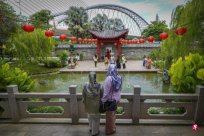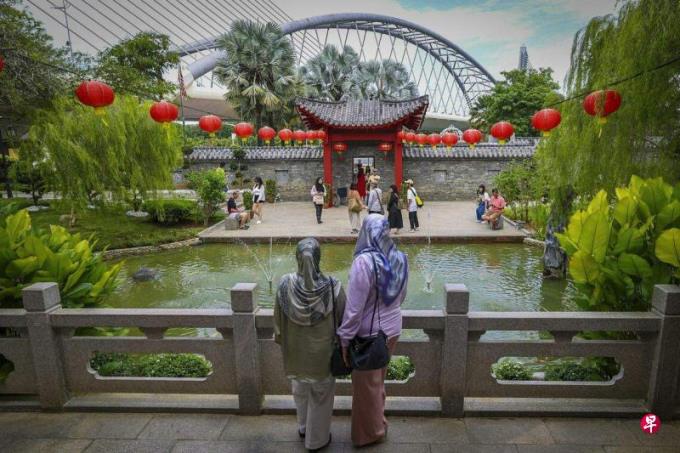
With the rise of China's middle class, more and more Chinese are capable of studying abroad and doing business abroad.Among them, Malaysia's parental business policies, low consumption levels, and multiple cultural environments have attracted many Chinese new immigrants.The Malaysian government lowered the threshold of the second garden plan and the threshold of various visas last year. It is expected that more Chinese people are moving to the country.
Huang Bin, 42, is from Tianjin, China. In 2002, he came to Kuala Lumpur to take international business courses in a private college.At that time, the Chinese did not know much about Malaysia. The young Huang Bin came to Malaysia with a little adventure spirit, and was mainly attracted by low tuition fees and the English teaching environment.
Huang Bin gradually fell in love with the local customs and life rhythm of Malaysia. After graduation, he decided to stay in Kuala Lumpur and organized families here. A few years ago, he began to operate durian exports to Chinese business with Malaysian partners a few years ago.
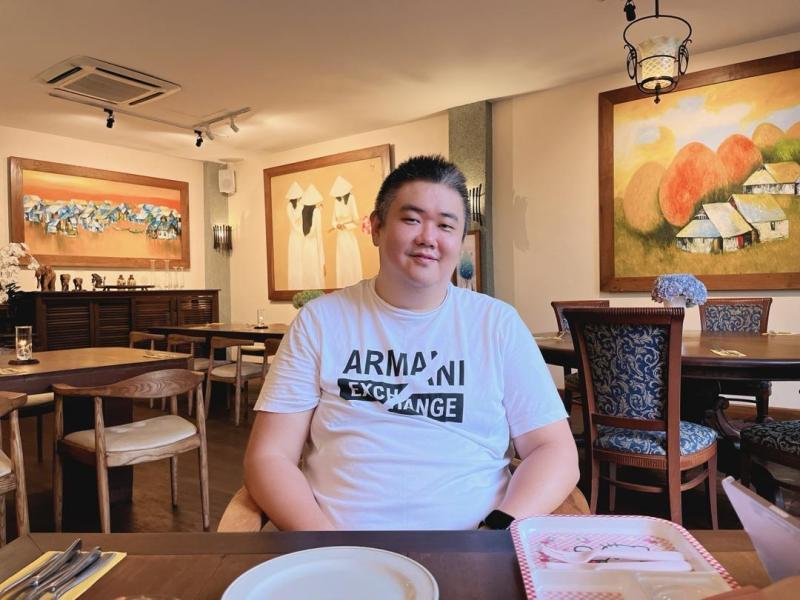
Huang Bin recalled during the interview with Lianhe Zaobao that in the early 2000s, many Chinese people were workers in the Malaysian country. Among them, there were many horses of abuse of tourist visas or overdue residence, leaving a bad look.
"Many local people think that the Chinese are liar, and Chinese women are often considered a 'little dragon girl' engaged in improper occupation."
In addition, Malaysia's private college at that time was irregular. Chinese students faced various problems, such as non -handling of curriculums enrolled, and deceived by the intermediary for applying for visas.
Huang Bin decided to set up a Malaysian Chinese Student Federation with friends to assist fellow villagers to solve problems.He is currently the Secretary -General of the Malaysian Aid Association.
He said that Malaysian Chinese businesses are very enthusiastic about Chinese students. "Maybe they feel that it is not easy for previous people to come to Nanyang from China that year. Many people are willing to pay for us to help us."
After the 2008 Beijing Olympics, the Chinese economy took off, and the economic conditions of the Chinese people improved significantly.Huang Bin believes that the new wave of immigration reached its peak from 2017 to 2019.
"The Chinese are really rich, and more and more people go to Malaysia to study, invest and do business, and the local people's perception of the Chinese has also changed."
Nowadays, there are Chinese people in Malaysia, such as the Chinese people who are attracting business and entrepreneurship in the Klang Valley area, Penang attracted the Chinese people who want to slow down half of their retirement life, even the mountain city Ipoh or the ancient city Ma LiujiaThere are also Chinese people settled, and there are many Chinese people who marry Malaysia in various places.However, Malaysia officials have not disclosed the statistics of new immigrants, and the academic circles have limited research on new immigrants. Therefore, the overview of Chinese new immigrants in Malaysia is still hazy.
Dr. Rao Zhaobin, director of the China Institute of Malaya University, said in an interview that Malaysia rarely approves foreigners to become citizens or permanent residents, so those who stay in Malaysia for a long time can be classified as new immigrants, including international studentsThe second home visa holder, worker, and overdue residents.
Rao Zhaobin in September 2022 In the report issued by the electronic publication of Electronic journal of the Eastern South Asian Research Institute in Singapore, estimated that there were at least 82,000 Chinese population in Malaysia, about 35 % of which were international students, followed by No.IThe second home visa holder and dependent (18 %), the third is expertise and workers (12 %).
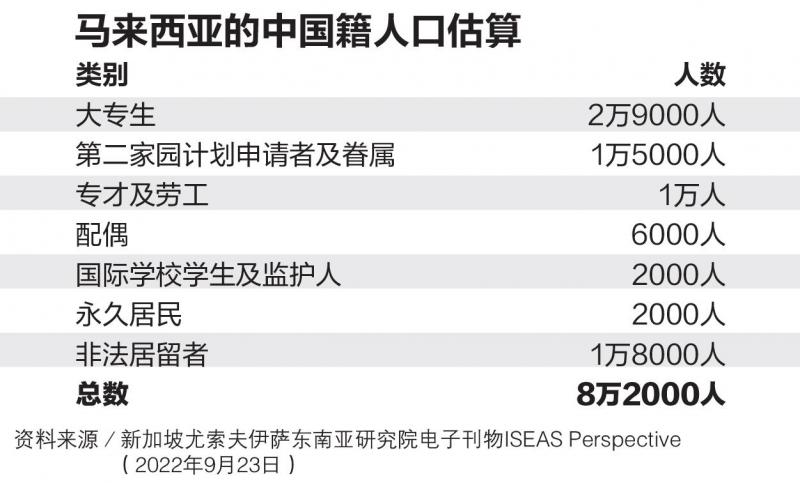 />
/>
This is the conservative estimate of Rao Zhaobin's data after the data of various departments, excluding East Malaysia's second garden visa holders.
According to the latest data released by the Ministry of Higher Education in Malaysia last year, Chinese students have increased from 29,000 in 2021 to 39,000 in 2022. In addition, China has been reopened after the crown disease epidemic.It is estimated that the Chinese population in Malaysia has exceeded 100,000.
China's new immigrants have increased in recent years, mainly because the Chinese have financial capabilities, and the Chinese government has also encouraged enterprises to develop outside.In addition, China and Western countries have also prompted many Chinese to turn their destinations to Southeast Asian countries.
In Southeast Asian countries, Malaysia has the advantage of attracting new immigrants.Compared with Singapore, Malaysia's living expenses are low; compared with Thailand, the Chinese society that has not been assimilated by the Malaysian State is relatively safe.A large number of Chinese people moved to Malaysia, which reminded people of the new Malaysian Chinese more than 100 years ago.However, at the same time, the new Chinese immigrants now move to Malaysia without "selling pigs."
High liquidity of new immigrants may not be rooted
Rao Zhaobin pointed out that this wave of immigrants is more liquid. Although they have stayed in Malaysia for a long time, they rarely take root. "Because they have the ability to decide to stay or return to China, they may not be fixed in one place."
In addition, in Southeast Asian countries, only Singapore's immigration policy is relatively open, giving foreigners a chance to be citizen.Malaysia and other Southeast Asian countries rarely send citizens to foreigners.
According to the data released by the Malaysian National Registration Bureau earlier, in the past five years, only 45 new Chinese immigrants have obtained citizenship.
Chinese immigrants are not easy to integrate into mainstream society
Like the Chinese ancestors who "selling pigs" to Nanyang at that time, new immigrants in China are not easy to communicate with non -Chinese ethnic groups, and it is difficult to integrate into the mainstream society. In additionsociety.
Zhang Xianghua (29 years old) from Malaysia University from Shandong, China admits that when he lives with many Chinese people in Malaysia, he occasionally faces communication difficulties."The mainstream language here is still Malay, and I sometimes do n’t understand the speakers of the lecturers and classmates in class. Many Chinese people do n’t dare to communicate with Malays and Indians because of their limited language skills.
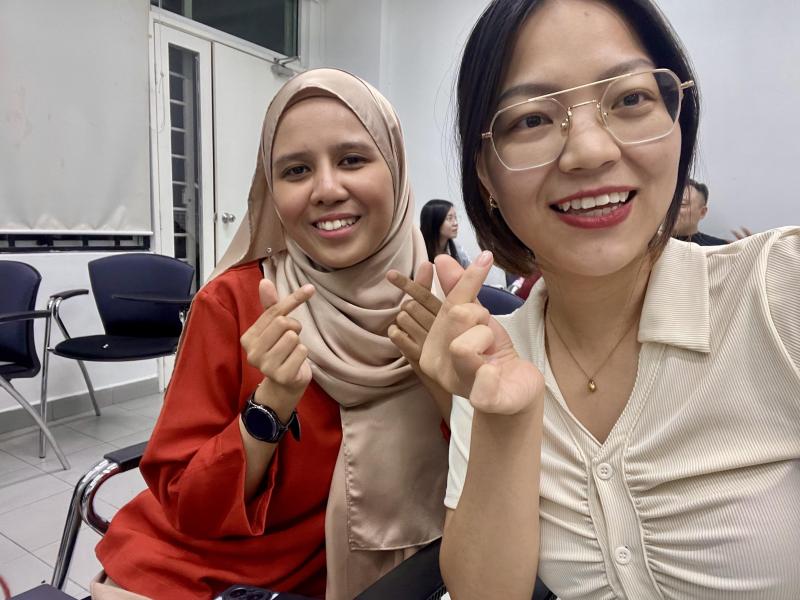
Zhang Xianghua worked for eight months in Malaysia in 2018. Because he liked Malaysia, he decided to apply again two years ago. He is currently a graduate student in Malaysia University of Commerce.
She said that in recent years, more and more Chinese have been studying in Malaysia, because the international rankings of some college universities in Malaysia are high, and returning to China to find a job after graduation have more advantages.
"However, I plan to live in Malaysia for a long time because China is too rolled. I like the rhythm of life here and feel the tolerance of Malaysian society."
Shen Honghua (51 years old), who operates electrical business in Shuangxi Mao Nuo, Shuangxi Mao, noticed that in recent years, more and more Chinese people have been, most of them are white -collar class and businessmen.He is not responsibleThe competition between the Chinese and the locals believes that the Chinese have financial resources. Investment and consumption in Malaysia can stimulate economic growth.
However, he admits: "There are still differences between the Chinese and the local Chinese. They rarely communicate with the local people and have their own circles, but so far they have not caused interference to the locals."
Rao Zhaobin believes that the social circle of new immigrants is mainly Chinese, and they can also communicate with Chinese Chinese, but it is difficult to integrate into the mainstream society, and there are not much communication with other races.
Some new immigrants have caused controversy because they do not understand the history and culture of Malaysia.In 2021, a Hunan restaurant in Penang did not understand that communism was taboos in Malaysia. The portrait of Mao Zedong, a former Chinese government, was attached to the restaurant. Two Chinese chefs were detained by the police to assist in the investigation.
There are "Chinatown", "Nanjing Street"
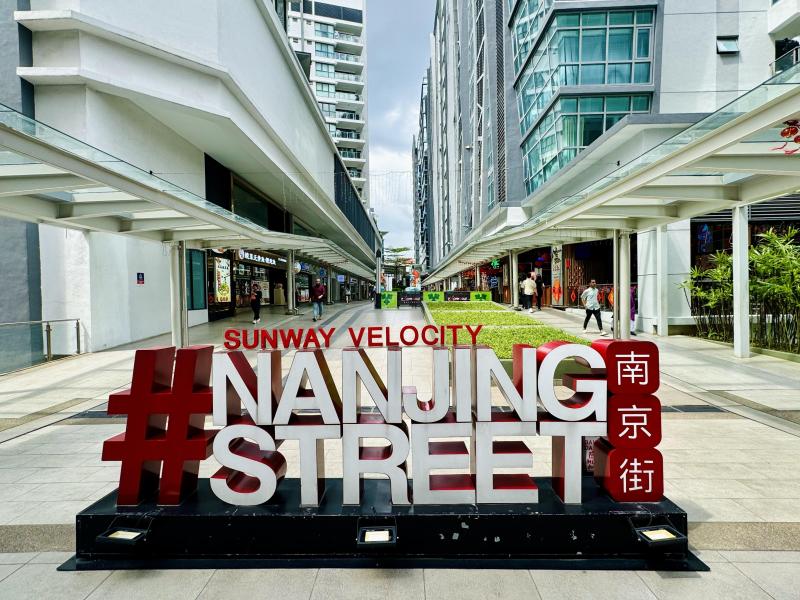 />
/>
China's new immigrants have increased, and "Little China" or "Chinatown", which is different from traditional Inti -Factory Street, appeared in Kuala Lumpur, such as Sunway Velocity, Kuala Lumpur.There are shopping malls and apartments in this comprehensive development project, and many residents are Chinese. The "Nanjing Street" in the square has various Chinese restaurants with various cuisines.
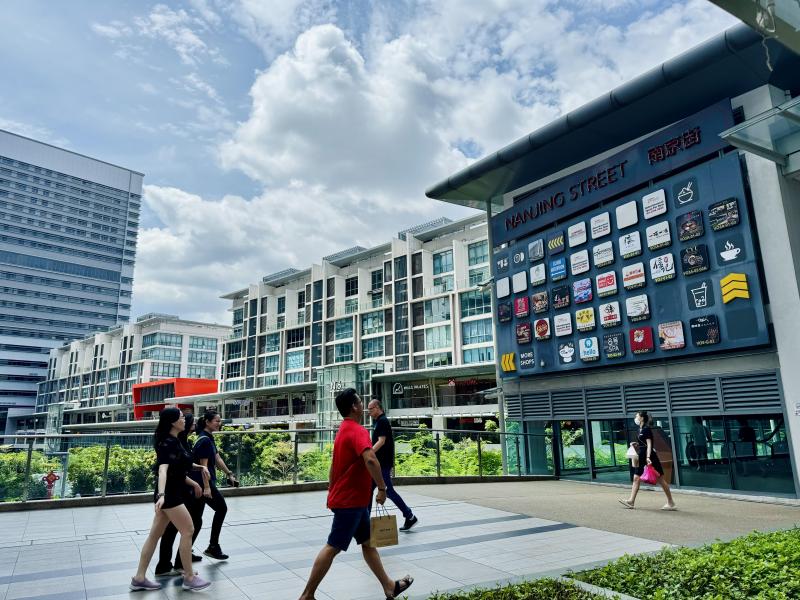
Datang, which focuses on Northeast cuisine, opened eight years ago at Sri Petaling, Kuala Lumpur, and opened a branch in Shuangweiwei Plaza last year.Boss Li Jianpeng (45 years old) moved to Kuala Lumpur from Jilin Province, China last year to play business in person.
Li Jianpeng said in an interview that he decided to develop in Malaysia because he saw that the recovery of the Malaysian country after the crown disease was better than China."China's development is too fast, and the competition in various industries is very large, and it needs to precipitate for a while. For the catering industry, there is still a lot of room for development in the Malaysian market."
Li Jianpeng's customers are mainly Chinese students and Chinese who work with Chinese companies to work in Kuala Lumpur."In the past few years, Chinese Malaysians have also been able to accept Chinese flavors of food. About 40 % of our customers are local Chinese."
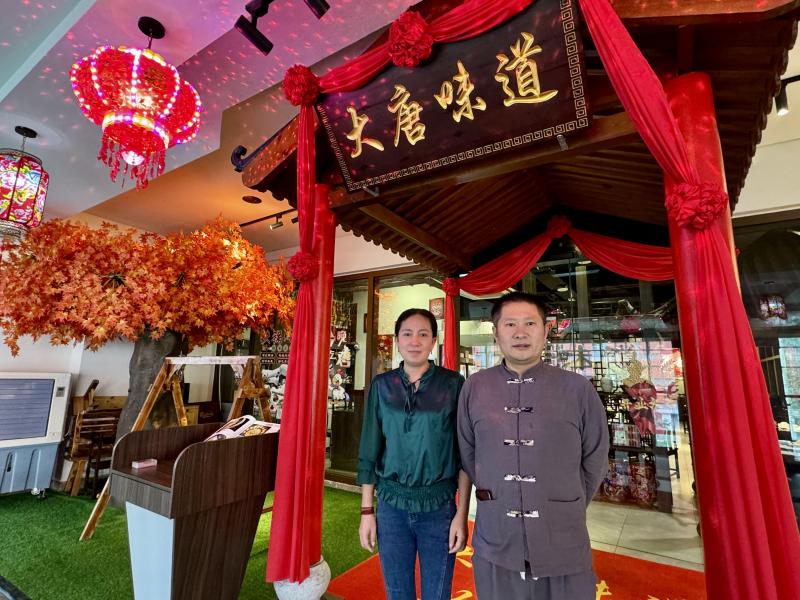
With more Chinese people investing in and doing business in Malaysia, Malaysia has also emerged from the geographical and karma groups established by many new immigrants in recent years, such as the Shandong Chamber of Commerce, Zhejiang Chamber of Commerce, Hebei Chamber of Commerce, etc. In addition to helping each other and sharingResources also assist in promoting Malaysian -China cooperation.
Chinese people's migration subjects are stir -hyped racial emotions
The ethnic and religious topics have frequently become the battlefield of the Malaysian political parties in the past year. The topics of the Chinese people's move to Malaysia have also been speculated, causing the Malays to disturb.
The Ministry of Malaysia Tourism, Art and Culture launched the second -optimized version of the park plan at the end of last year, which reduced the applicant's age and financial capacity requirements and was criticized.
According to the plan, the official will divide the three groups of platinum, gold and silver according to the conditions of the applicant.Applicants with the lowest thresholds must stay in Malaysia's shortest days each year, from 90 days to 60 days; regular deposit requirements are reduced from RM1 million (about S $ 280,000) to RM 500,000.The minimum application age of all groups also dropped from 35 to 30.
After the official announcement of relaxing the application conditions, it is known that the response is enthusiastic. Many agencies of visa -approved visa have received the customer inquiry.As the application conditions are more reasonable, it is estimated that the optimized version of the second home plan can attract more different foreigners to apply.
However, the second home plan after the opposition criticism of the opposition has attracted the Chinese people, and claimed that once the Chinese have obtained the second home plan visa, they are eligible to obtain the status of the Malaysian permanent resident.They described this as the country's latest "Red Flag".
This topic has attracted attention in social media.The opposition supporters criticize the government to make the Chinese a permanent resident is a national interest.Some Malay people are also worried about this plan.
The resident of Dengjialou Norassida (35 years old, bank staff) said in an interview with Lianhe Morning Post that if a large number of wealthy Chinese people move to Malaysia, they will raise house prices and living expenses.She is also worried that these Chinese migrators "do not speak Malay, can only communicate with other Chinese and local Chinese, and it is difficult to integrate into Malaysian society."
As of official data as of 2018, the number of applicants for the second home plan are mostly Chinese, accounting for 30.5 %; Japanese and Banglades are ranked second and third, respectively, accounting for 11.3 % and 9.8 %, respectively.EssenceSingapore applicants account for 3.5 %.
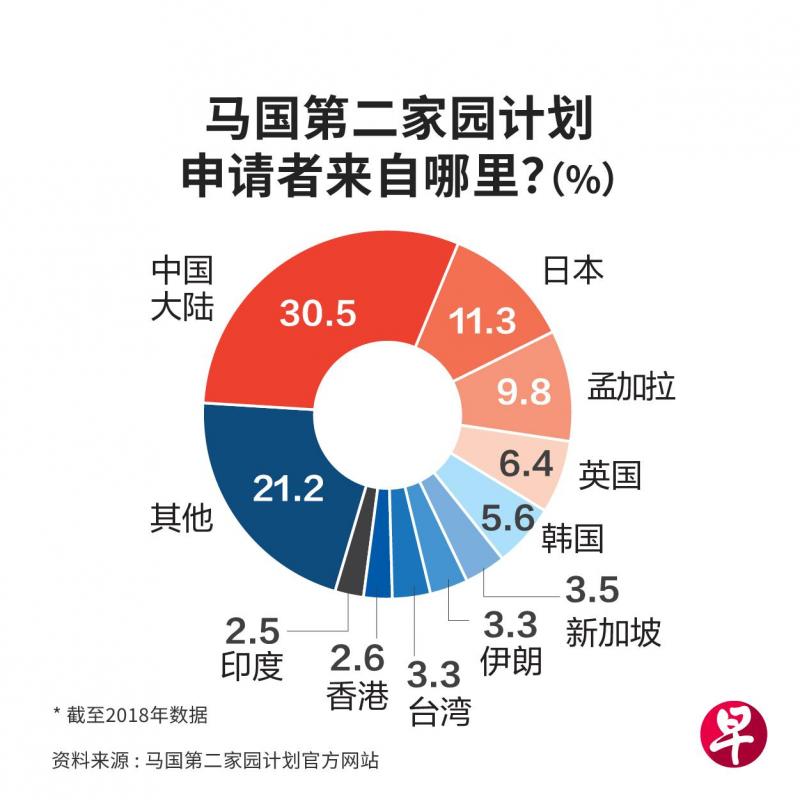
Minister of Tourism, Art and Culture, Zhang Qingxin, clarified earlier that the second park plans to treat any eligible applicants, and only other applicants in the platinum group can apply for permanent residence rights in accordance with the regulations of the Immigration Bureau.
Rao Zhaobin believes that the Malay people generally do not have much hostility to the Chinese, but some Malay nationalists often hype the subjects of Chinese people and incite racial emotions."If this situation is not controlled, it may exacerbate the uneasiness of the Malay people and even cause doubts."
New immigrants have not formed fierce competition with locals
The Government of the Malaysians has maintained a friendly policy for China. After taking office, the Prime Minister Anwar has more actively attracting investment in China and inviting Tsinghua University to set up branches.Starting from December 1 last year, Malaysia -China has implemented mutual visa -free measures, and the Malaysian government has also reduced the threshold of various visas accordingly.
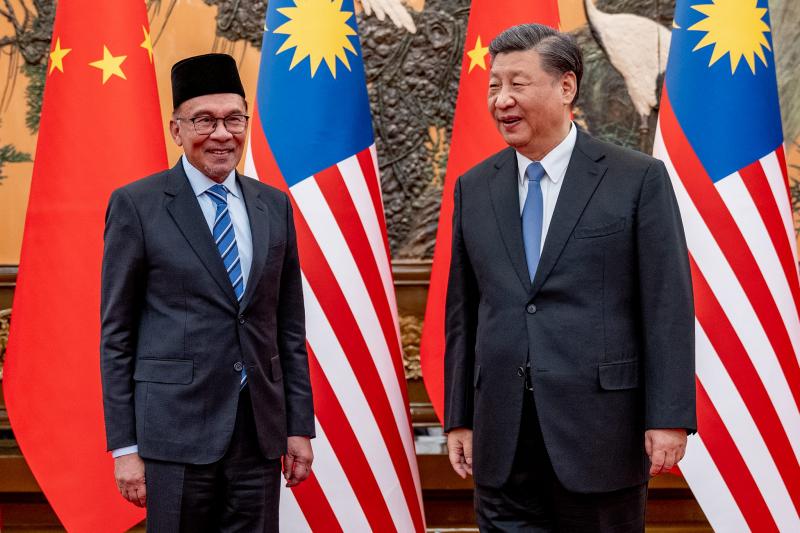
Rao Zhaobin believes that with the strengthening of Malaysia's cooperation in education and economic fields, the number of new immigrants will increase significantly in the next few years.However, as long as the new immigrants have not affected the distribution of economic interests or the opportunities to deprive Malaysians, they can avoid conflict with the locals.
"At present, the Chinese people create opportunities in Malaysia greater than the opportunity to deprive the locals. They canConsumption of moving the horse country.Most local Chinese have also regarded the trend of Chinese people as opportunities, and many people have also formed business partners with the Chinese."
In addition, most Chinese are economic immigrants and are not interested in Malaysian politics.Because they are difficult to become citizens, they cannot form political forces.
However, as China's new immigrants continue to increase, all areas of Malaysia must be prepared to ensure sufficient resources.
Rao Zhaobin takes the field of education as an example. The number of Chinese students has increased sharply in the past five years, but many universities have not fully prepared, so that teachers and other resources are tight."Before that, the university may arrange five teachers to guide five students. Now it is five teachers to guide 50 students, which will affect the quality of teaching."
He believes that the Anwar -China -China relations can bring opportunities, but the government needs to study the problems that may be possible to communicate closely."These problems are not ideological, nor politics, but are real. Is we capable of accommodating a large number of new immigrants?"


